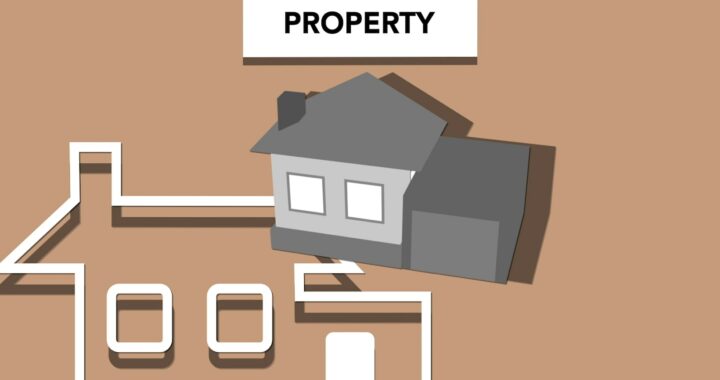
The Risks of Investing in Real Estate – How to Invest 30k in Real Estate
How to Invest 30k in Real Estate
Investing in real estate can be a lucrative venture, but it’s important to understand the risks involved before diving in. In this article, I’ll discuss the potential pitfalls of real estate investing and provide some insights on how to wisely invest your 30k in this market.
One of the primary risks of investing in real estate is market volatility. The value of properties can fluctuate significantly due to various factors such as economic conditions, changes in interest rates, and local market trends. It’s crucial to thoroughly research and analyse the current state of the real estate market before making any investment decisions.
Another risk to consider is the potential for property depreciation. While many investors hope to see their properties appreciate over time, there’s always a chance that external factors could cause a decline in value. Factors such as changes in neighbourhood demographics, infrastructure developments, or even natural disasters can impact property values negatively.
Additionally, there are financial risks associated with investing in real estate. You must carefully consider your budget and ensure that you have enough funds not only for purchasing the property but also for ongoing maintenance costs, property taxes, insurance premiums, and any unexpected expenses that may arise.
Now let’s focus on how you can smartly invest your 30k in real estate. It’s essential to diversify your investment portfolio by considering different types of properties such as residential homes or commercial spaces. Conduct thorough research on potential locations and seek professional advice if needed to make an informed decision.
Furthermore, consider starting small by investing in properties within your budget range rather than going all-in with a single high-value property. This strategy allows you to minimise risk while gaining valuable experience navigating the real estate market.
- Appreciation: One of the primary ways investors make money in real estate is through property appreciation. Over time, as demand increases and supply decreases, property values tend to rise. This means that your initial investment could grow significantly if you choose the right location and hold onto the property for an extended period.
- Rental Income: Another avenue for generating returns is through rental income. By purchasing a property and renting it out to tenants, you can earn a steady stream of cash flow each month. With careful research and proper management, rental properties can provide a consistent source of income that exceeds your initial investment.
- Tax Benefits: Real estate investments come with several tax advantages that can enhance your overall returns. For instance, you may be eligible for deductions on mortgage interest payments, property taxes, insurance premiums, and even depreciation expenses. These tax benefits can help offset costs and increase your net profits.
- Diversification: Investing in real estate allows you to diversify your portfolio beyond traditional stocks and bonds. This diversification helps spread risk across different asset classes and reduces vulnerability to market fluctuations or economic downturns.
- Leverage: Real estate offers unique opportunities for leveraging your investment capital. With mortgage financing options available, you don’t have to invest the full purchase price upfront; instead, you contribute a down payment while borrowing the rest from a lender. By using leverage effectively, you multiply the potential returns on your initial investment.

Assessing the Risks Involved in Real Estate Investment
When it comes to investing in real estate, there are risks that every investor needs to be aware of. It’s crucial to assess these risks carefully before deciding where to invest your hard-earned money. So, let’s delve into some key factors that can help you evaluate and manage the risks associated with real estate investment:
- Market Volatility: One of the primary risks in real estate investment is market volatility. Property values can fluctuate based on various factors such as economic conditions, supply and demand dynamics, and changes in interest rates. It’s essential to conduct thorough research on the local real estate market trends and seek expert advice from professionals familiar with the area you’re considering.
- Cash Flow Uncertainty: Another risk factor is cash flow uncertainty. Rental properties rely on tenants paying rent consistently, which may not always happen due to vacancies or non-payment issues. It’s crucial to analyse potential rental income against your expenses like mortgage payments, taxes, insurance, maintenance costs, and property management fees. This analysis will help you determine if your investment can generate positive cash flow even during periods of vacancy or fluctuating rental rates.
- Property Condition and Repairs: Investing in fixer-uppers or older properties carries its own set of risks related to repairs and maintenance costs. Before making a purchase decision, conduct a thorough inspection or hire a professional inspector who can identify any underlying structural issues or necessary repairs that could significantly impact your budget.
- Financing Challenges: Securing financing for real estate investments can sometimes pose challenges as lenders have stringent requirements for approval. Factors such as credit history, debt-to-income ratio, down payment amount, and property appraisal value play significant roles in determining loan eligibility and terms offered by financial institutions.
- Legal and Regulatory Compliance: Real estate investments come with legal obligations and regulatory compliance requirements that vary from jurisdiction to jurisdiction. Familiarise yourself with local laws, zoning regulations, rental property guidelines, and any potential legal liabilities associated with property ownership. Consulting with a real estate attorney can help you navigate these complexities.





